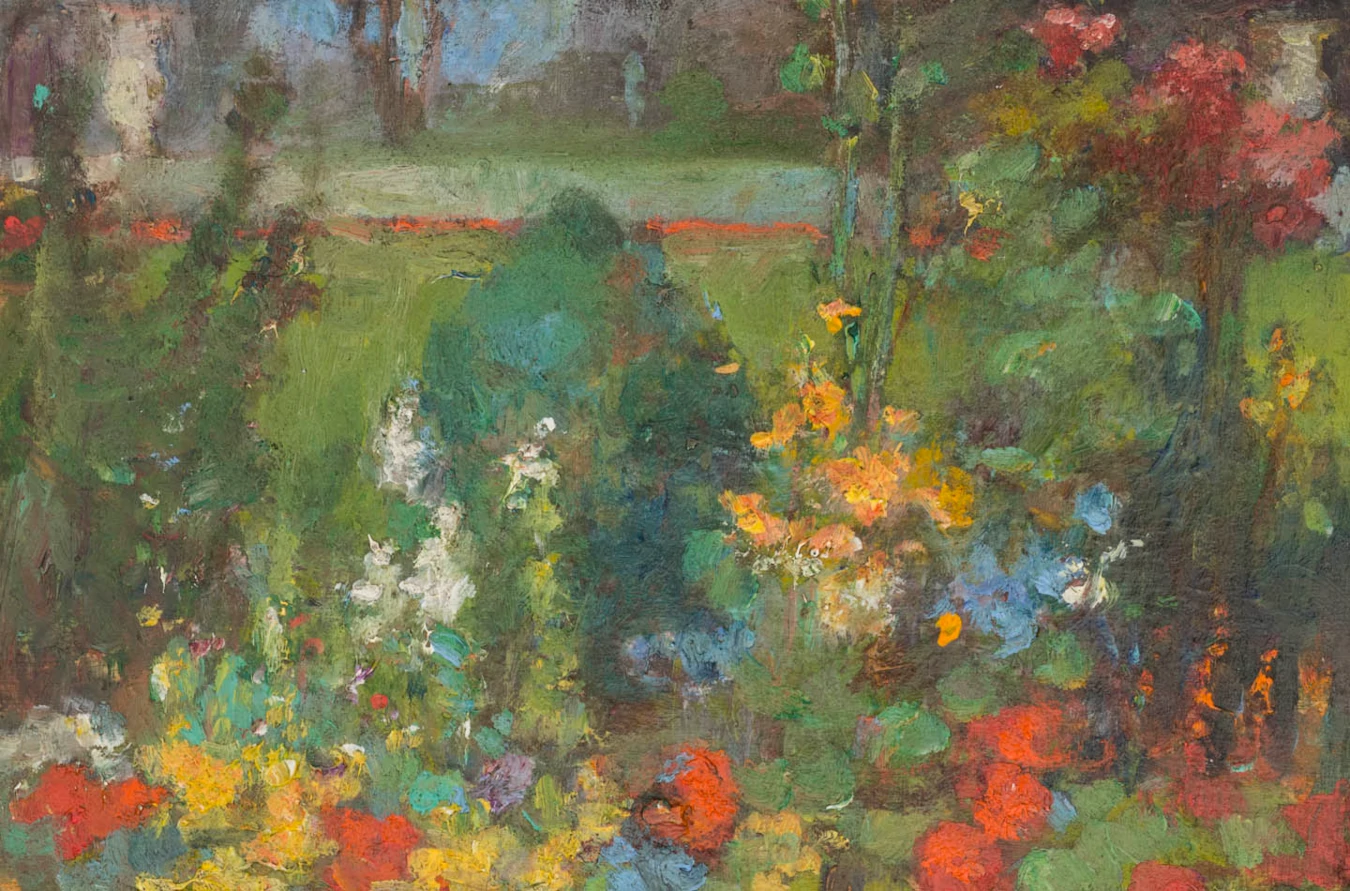
Pushing Down Daisies
Words By Dan Portincaso, Art By Clara Weaver Parrish
Beman wheeled Millie into their garden and lifted the oxygen mask from her face. The perennials stirred and shimmered in anticipation of the toiling clouds overhead.
Purple. Blue. Yellow.
Daisies. Foxgloves. Asters.
The leaves turned upward and their color deepened as if the flowers had pulled back their heads and opened their mouths to drink the sky.
Ten years ago, Millie and Beman healed the scars left on the lawn by swing sets and sandboxes. The garden was something to nurture after their children no longer required tending. In the cool mornings, they meticulously trimmed and weeded the overgrowth, then rested in the afternoon heat. Millie liked to close her eyes in the sun and listen to the purring of hummingbirds and droning bees. In a deep, resonant breath she would bring the warm honeyed scent of fresh pollen through her nose, let the saccharine smell of dew fall on her tongue and grow sour from the balm of damp soil, rich and woody like a hidden sanctuary. “I think, if I could have one wish, I would wish for this,” Millie would say. Beman would pull her close and rest his head on her shoulder.
When the cancer startled their routine, Millie could no longer sustain the garden, and Beman, instead, sustained her. The chemotherapy burnt its way through her veins like a lit fuse. She was falling to ash. Outside, the flowers of the garden had never grown so vigorously. They became tangled and dense. Thick vines of morning glory wound up the top-heavy asters, and sharp thistles towered in clusters.
Each day, Beman wheeled her into the garden, down the path. The air soothed Millie’s exhausted, now paper thin, lungs. She imagined the air of the garden like an ambrosia, rejuvenating what the cancer had eaten.
Today, she said, “Beman, will you help me out of this chair? I want to lie in the flowers.”
“We should go inside. It will be raining soon.”
Millie nodded patiently and inhaled the humid air with defiance. “I would like to lie with the flowers.”
Beman avoided her eyes, “You are too weak. I worry.”
Soon her body would touch the earth forever. When the cancer was satiated, she would pass into the soil from which the greenery would grow. “Indulge a sick woman. I just want to feel what it is to be a flower.”
Beman searched the sky, then dropped his eyes to Millie. She sat perfectly straight, her hands neatly folded in her lap, eyes focused on a cone of purple foxglove hanging like tolling bells. He held out his hand. “Can you stand?” She nodded and held him to steady herself.
“Now,” she said, “let me down.” She bent her body, as if to sit, and leaned back. He held onto her, a safety rope on a mountainside, until she rested on the ground. “Let go,” she said.
She spread her arms and fell backward, her eyes closed with deliberation. The flowers seemed to catch and ease her down. The plants were warm, as if blood flowed through them. The earth, cool and moist: a wet towel on a fevered head.
Millie lay still. A breeze rippled over her as it fell from the trees—a cold front. She pulled one of the long foxglove stems down to her face and drank the verdant smell of a living death.
The wind thundered. The clouds broke into thick drops that bit at her skin.
“We should get you up,” said Beman, “Before you catch a chill.”
Millie was not ready yet. She needed to understand. She would be earth longer than she had been woman, and she wanted to know how it felt before she was washed into it forever.